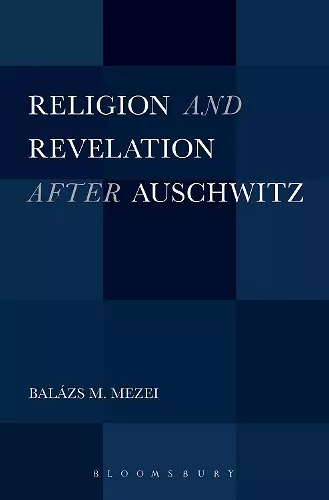Religion and Revelation after Auschwitz
Professor Balázs M Mezei author
Format:Hardback
Publisher:Bloomsbury Publishing PLC
Published:6th Jun '13
Currently unavailable, and unfortunately no date known when it will be back

Shows the importance of a philosophical theology for contemporary Catholic thought, especially in light of the tragic event of Auschwitz.
Religion After Auschwitz is a philosophical approach to the notion of revelation. Following such authors as A. Dulles, R. Swinburne, or K. Ward, Balazs Mezei investigates some of the main problems of revelation and connects them to the general problem of religion today. Religion is considered in the perspective of the age "after Auschwitz", an expression coined by Hans Jonas and further elaborated by J. B. Metz. Mezei develops the insights of these philosophers and investigates various aspects of religion and revelation "after Auschwitz": contemporary theistic philosophy, phenomenology, art, mysticism, and the question of university education today. A fascinating amalgam of subjects and approaches, Religion and Revelation After Auschwitz is an important contribution to contemporary discussions on the possibility of Catholic philosophy.
[T]he most precise, searching, and in-depth investigation of a subject whose importance cannot be overestimated if philosophy is to take seriously the existential challenge of Auschwitz. A graceful, careful and lucid discussion... Mezei’s outstanding narrative is unprecedented in scope and detail and will shape future philosophical debates on the relationship between history, personhood, and our individual and collective futures. -- Alexander Batthyány, University of Vienna, Austria
[A] valuable work by an especially fertile thinker. Mezei, whose Jewish mother was forced into hiding during the War years, looks frankly and honestly at the challenge posed to contemporary thought by the grievous offenses against human dignity in the 20th century, by the disasters represented by Auschwitz. Here the author addresses the contemporary challenges not only to philosophy, but to the university, art, and religion. Mezei brings to this project a broad and deep knowledge of modern Continental—especially Austrian and German—thought, as well as of its more distant Medieval roots. -- Adrian J. Reimers, University of Notre Dame, USA
This is a unique and utterly original exploration of two of the most compelling questions of our time—the evil of Auschwitz and whether there’s a reality that can go beyond without abolishing the brute fact of that evil. A profoundly inclusive thinker drawing on the entire range of Western thought and spirituality, Mezei draws his reader deeper into themselves and toward unexplored horizons beyond. -- Brendan Purcell, Notre Dame University, Australia
Auschwitz has come to be considered by many as a stumbling block for continuing philosophy and theology as they have been practised until now. For Mezei, the Shoa is indeed a watershed but it also allows us to rethink the essential theme of divine revelation. Through a large spectrum of thinkers and systems from the late Antiquity up to the beginning of this third millenium, he attempts at working out a new, more radical understanding of what revelation really means. Readers may not agree with this or that position, but they will be deeply impressed by the width of its purpose and the creativity of its vision. -- Miklos Vetö, Professor Emeritus of Philosophy, University of Poitiers, France, and External Member of the Hungarian Academy of Sciences
ISBN: 9781441195340
Dimensions: unknown
Weight: 689g
336 pages